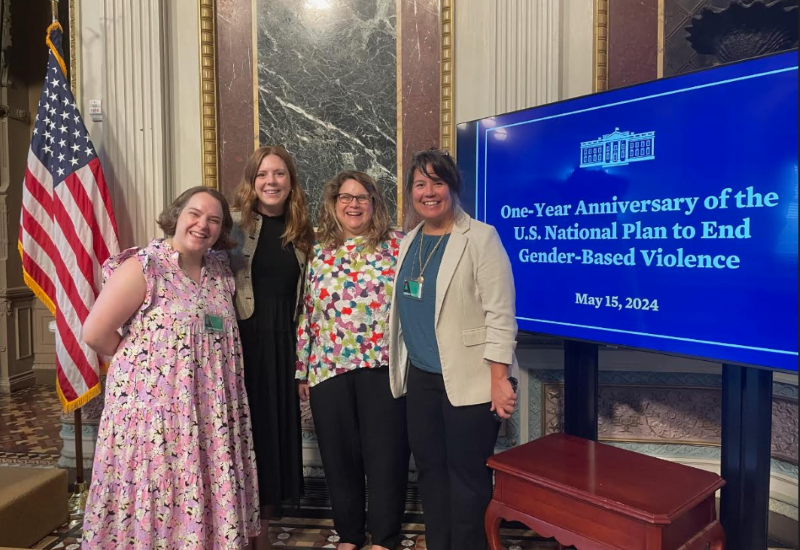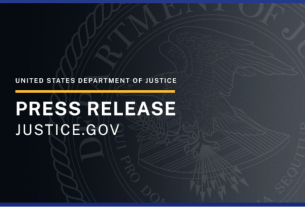On May 25, 2023, the Biden-Harris Administration published the United States’ first-ever National Plan to End Gender-Based Violence, laying out whole-of-government action steps that will move us closer to ending gender-based violence in the U.S. To fulfill the vision of the National Plan, agencies across the federal government committed to concrete actions to strengthen prevention of and response to gender-based violence.
The Women’s Bureau co-led the shaping of the Plan’s economic security and housing stability pillar, which aims to change harmful work cultures, address the root causes of gender-based violence in the world of work, and improve economic security for workers and survivors experiencing gender-based violence and harassment. Many of the actions outlined in this pillar drew inspiration from the International Labour Organization’s (ILO) Convention on Violence and Harassment (Convention 190). While the U.S. has not ratified Convention 190 and it is not binding on U.S. employers, it is the first international treaty to recognize the right to a world of work free of violence and harassment.
Here are four key actions the Women’s Bureau has taken to implement the Plan:
In September 2023, the Women’s Bureau awarded the first Department of Labor grants exclusively focused on ending gender-based violence and harassment in the world of work. Over $1.5 million was awarded to five community organizations working across 14 states to build awareness of gender-based violence and harassment in the world of work, connect workers and survivors to their workplace rights and benefits, and implement worker- and survivor-driven strategies to shift workplace norms and culture. The grant program, Fostering Access, Rights and Equity (FARE), is now accepting Fiscal Year 2024 applications through May 28, 2024.
Shortly after the Plan was released, the Women’s Bureau signed a memorandum of understanding with the ILO Office for the U.S. and Canada to engage in joint events and activities concerning gender-based violence and harassment, including uplifting the principles of Convention 190 in U.S. policies, programs and practice. Together we are engaging stakeholders around the country and across sectors to discuss effective worker- and survivor-driven solutions to eliminate gender-based violence and harassment in the world of work. Since announcing our partnership, the Women’s Bureau has held about 40 regional convenings that have brought together workers, employers, unions, worker advocates, government representatives and others.
The Women’s Bureau also partnered with the Department of Labor’s Occupational Safety and Health Administration on a webinar series that emphasized that gender-based violence and harassment is a workplace safety and health issue that has psychological and physical impacts on workers. The series featured discussions with workers, worker advocates, employers, and representatives from unions and the Equal Employment Opportunity Commission.
Finally, the Women’s Bureau created a webpage on gender-based violence and harassment and published fact sheets, issue briefs and blogs throughout the year. Our fact sheet on gender-based violence and harassment in the world of work discusses key terminology, lists examples and outlines the key initiatives in this space. It is available in English and Spanish.
Carrying out the vision of the National Plan will take continued effort, action and coordination for many years to come. We all have an active role to play in making our world of work, and our society as a whole, safer and more equitable. The Women’s Bureau is committed to implementing this vision by engaging with survivors, workers, unions, employers and government agencies to address and prevent gender-based violence and harassment in the world of work.
Amy Dalrymple and Kate Miceli are Policy Analysts at the Women’s Bureau. Katrin Schulz is the Branch Chief of Grants, Communications & Planning at the Women’s Bureau.



